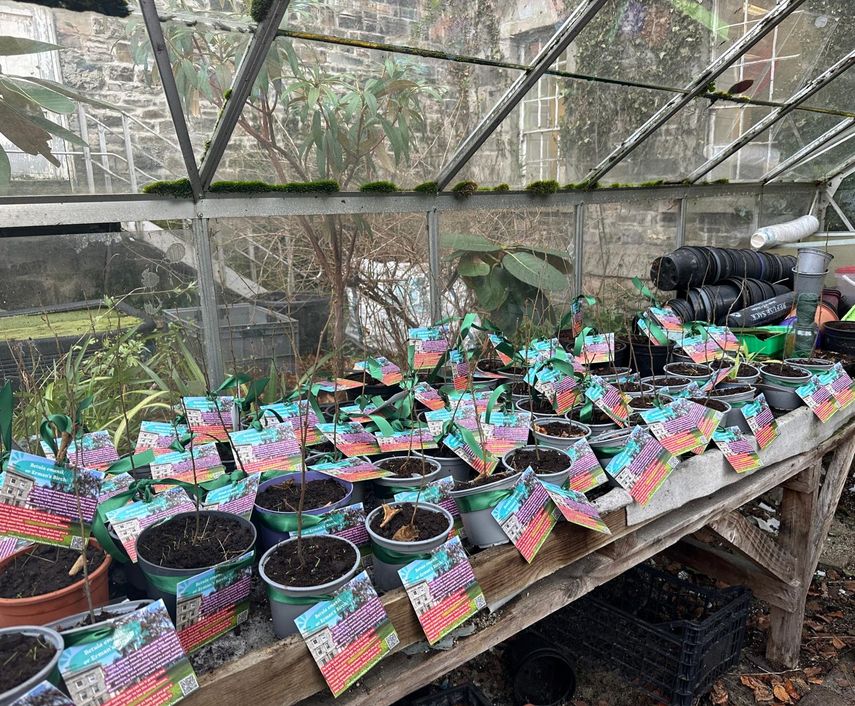This morning, Trinity gave away 100 birch tree seedlings which sprouted naturally on campus lawns following College’s “No Mow May” initiative. The seedlings were distributed from Front Square.
Any seedlings not collected today will be made available to students and staff at a later date.
The distribution of the seedlings marks the launch of Trinity’s Sustainability Strategy 2023-2030, which “sets out a roadmap to embed sustainability in everything Trinity does”.
The strategy is focused on environmental sustainability, specifically, climate change, biodiversity loss and human health.
Under the new strategy, Trinity aims to reduce its greenhouse gas emissions by 51% by 2030, with net zero emissions by 2040 in all emissions categories. Trinity also aims to be “nature positive” by 2030 through conservation, management, and restoration of “at least” 30% of its land area for nature.
Other targets set by the new strategy include taking actions to “support a culture shift in behaviours that promote and recognise the interrelatedness of planetary and human health”, such as improving access to plant-based diets and programmes that enable “active lifestyles”.
The Strategy includes an action plan divided into four areas: education, research, operations and community. Trinity aims to “embed” these issues in the curriculum in order to “prepare future generations to act as agents of change for sustainable development, in both their professional and personal lives”.
In addition to the seedling distribution, an event to celebrate the strategy launch was held in the afternoon at Trinity’s “Ideas Workspace”, Tangent. Speakers at the event included Provost Linda Doyle, Vice-President for Biodiversity and Climate Action Jane Stout and law student Jenny Salmon.
Speaking at the event, Provost Linda Doyle said: “I warmly welcome the launch of Trinity’s Sustainability Strategy, which builds on the many projects and activities already underway across College. This strategy challenges us to go even further in placing sustainability at the heart of our research, teaching and day-to-day operations.”
“I am impressed by its holistic approach encompassing people, planet and health, and also the priority it gives to reversing biodiversity loss by becoming Nature Positive”, she added.
During her speeches she also thanked Professor Jane Stout and her team for “constantly placing sustainability to the forefront of our minds”.






